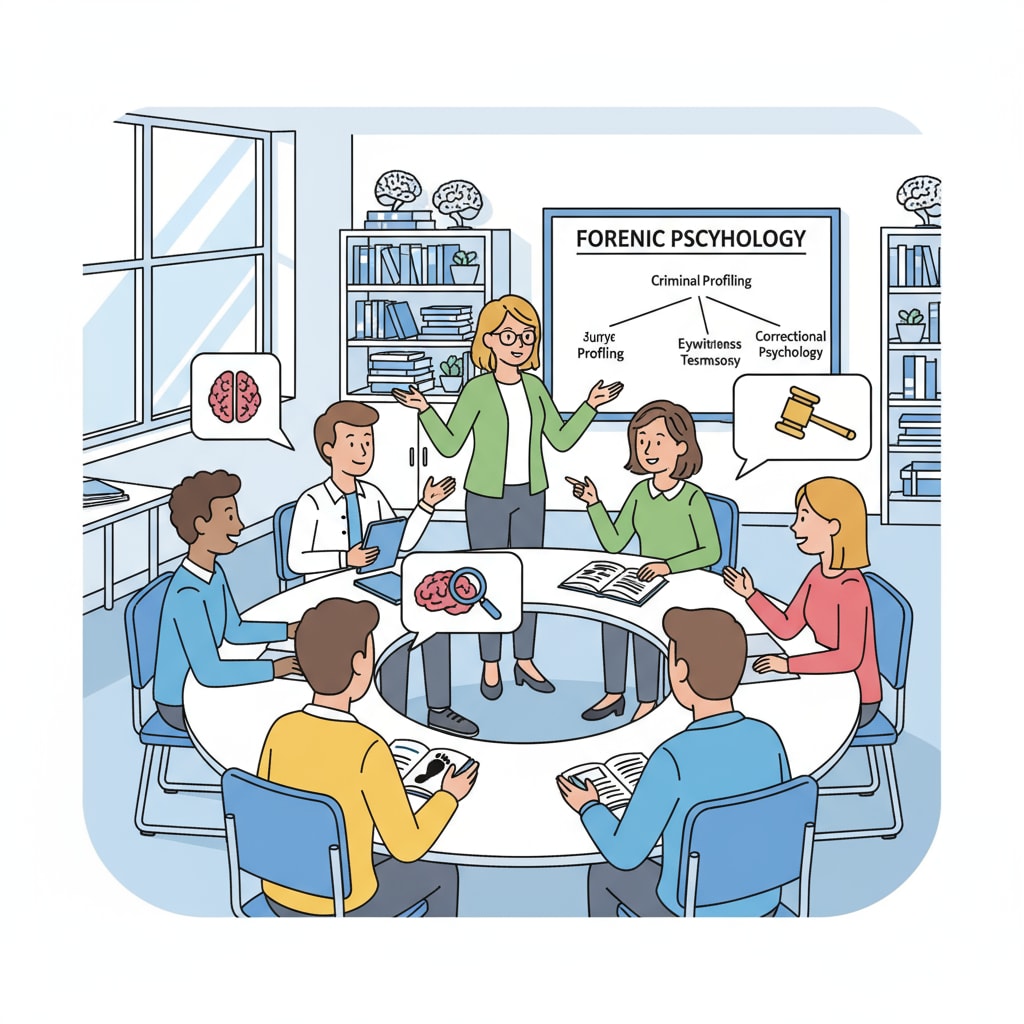Forensic psychology, university pathways, and career planning are crucial aspects for students aspiring to become forensic psychologists. The journey towards this fascinating career starts as early as the K12 stage. Forensic psychology combines the fields of psychology and law, applying psychological principles to legal issues. It’s a field that offers a unique blend of intellectual challenges and real-world impact.

The Learning Path in Forensic Psychology
The path to becoming a forensic psychologist involves a series of educational steps. After completing high school (K12), students typically pursue a bachelor’s degree in psychology. This undergraduate degree provides a solid foundation in psychological theories, research methods, and human behavior. Courses in general psychology, abnormal psychology, and social psychology are essential. As students progress, they can choose to specialize in forensic psychology during their master’s or doctoral studies. Forensic psychology on Wikipedia offers detailed information on the academic journey.

Core Competencies for Forensic Psychologists
To succeed in forensic psychology, certain core competencies are required. Strong analytical skills are essential for analyzing complex legal cases and psychological evidence. Excellent communication skills, both written and verbal, are needed to present findings in court and communicate with legal professionals. In addition, a deep understanding of the legal system and ethical considerations is crucial. For example, forensic psychologists must adhere to strict ethical guidelines when conducting assessments. Forensic psychology on Britannica further elaborates on these competencies.
Preparing in the K12 Phase
During the K12 phase, students can start laying the groundwork for their future in forensic psychology. Taking courses in psychology, sociology, and criminal justice can provide an early introduction to relevant concepts. Participating in debate clubs or mock trials can help develop communication and critical thinking skills. Volunteering at local law enforcement agencies or mental health facilities can also offer valuable hands-on experience.
Readability guidance: As seen above, we’ve used short paragraphs to convey information clearly. The lists help summarize key points, and we’ve incorporated transition words like “in addition” and “for example” to make the text flow smoothly. The focus is on providing practical advice for students interested in forensic psychology, university pathways, and career planning.


